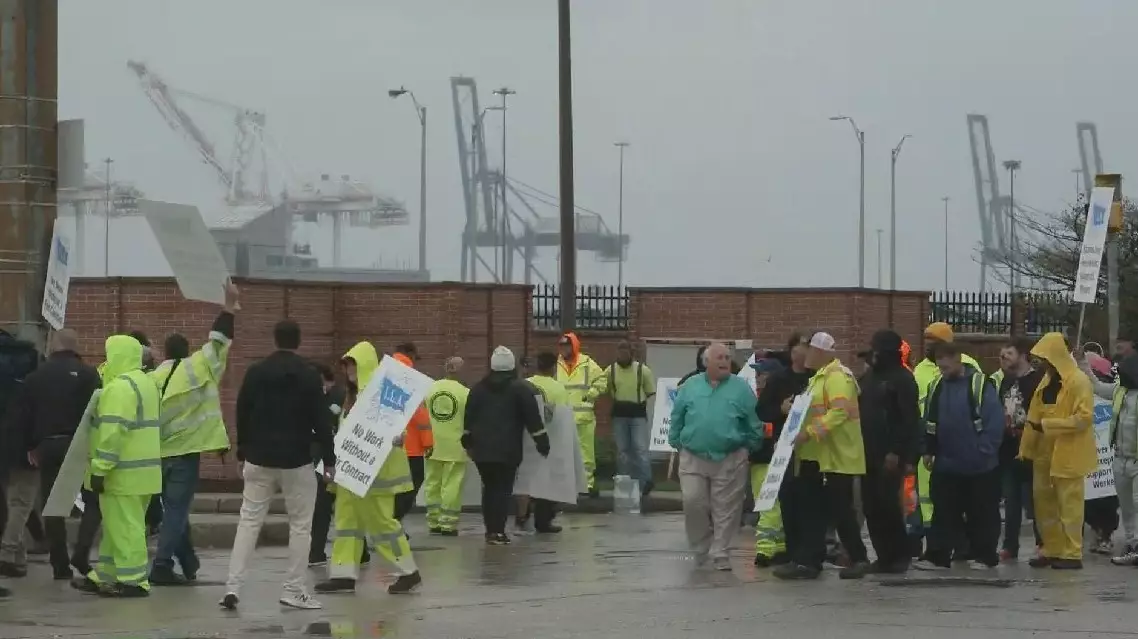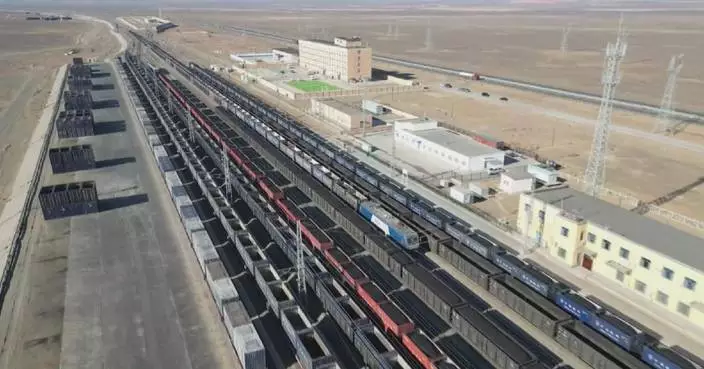About 45,000 port workers across the East and Gulf Coasts of the United States, including those in Baltimore, Maryland, went on strike on Tuesday as a midnight deadline for a new labor deal over wages and automation passed.
Labor negotiations stalled between the International Longshoremen's Association (ILA) and the United States Maritime Alliance (USMX), leading to the shut-down of up to 36 East and Gulf Coast ports.
The two sides, which had not been in formal negotiations since June, reportedly moved closer on wages on Monday, but apparently no deal had been reached.
The USMX, which represents the ports, said in a statement on Monday evening that it requested an extension of the current contract and increased its offer by raising wages by nearly 50 percent over the life of the contract.
The employer alliance pledged to keep the limits on automation in place from the old contract. But the labor union wants a complete ban on automation, according to an AP report.
A statement from the ILA said earlier on Monday that employers have refused to compensate workers fairly.
"The ILA is fighting for respect, appreciation and fairness in a world in which corporations are dead set on replacing hard-working people with automation," the ILA statement said, "Robots do not pay taxes and they do not spend money in their communities."
Local media reported that the ILA is seeking a 77 percent wage increase over the six-year life of the contract, for the union workers to make up for inflation and years of minimal raises.
The ILA members make a base salary of about 81,000 dollars per year, but some can pull in more than 200,000 dollars a year with large amounts of overtime, said the report.
Local experts estimate that the strike, the first by the ILA since 1977, could cost the U.S. economy up to 5 billion U.S. dollars a day, stirring inflation and supply chain concerns weeks before the presidential election.
There are fears that the strike could cause a shortage of supplies and rising prices of goods.
"I think right away you could start seeing shortages with respect to things like vegetables and fruits and things that are perishable that they've got to get in and out quickly. But the longer it goes on, the worse it could get, and more and more products are going to be affected. So, my hope is we can get it resolved sooner rather than later," said Larry Hogan, the former governor of Maryland who is now a Republican Senate candidate.
The affected ports handle roughly half the country's cargo ships. According to data from the National Association of Manufacturers, U.S. East Coast and Gulf Coast ports handle more than 68 percent of the country’s container exports and 56 percent of its container imports.

U.S. port workers strike over wages, automation









